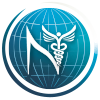Nasopharyngeal Cancer (Nasal Cancer)
Safe surgical solutions for your health with accurate diagnosis, safe intervention! NY Health is always ready with its professional team.
- Liver Cancer
- Lymphoma Cancer
- Leukemia
- Bladder Cancer
- Stomach Cancer
- Myelofibrosis
- Multiple Myeloma
- Nasopharyngeal Cancer
- Esophageal Cancer
- Pancreatic Cancer
- Penis Cancer
- Prostate Cancer
- Uterine Cancer
- Testicular Cancer
- Thymoma Tumor
- Thyroid Cancer
- Urethna Cancer
- Mouth Cancer
- Lung Cancer
- Bowel (Colon) Cancer
- Kidney Cancer
- Skin Cancer
- Tongue Cancer
- Early Stage Breast Cancer
- Larynx Cancer
More information
Feel free to contact us for more information or support with your questions. We will be happy to help you.
Get in touch!Customer Service
+90 532 100 66 78

NY Health
NASOPHARYNGEAL CANCER
Nasopharyngeal Cancer (Nasal Cancer)
It can progress silently, but can be controlled with early diagnosis and proper treatment
Nasopharyngeal cancer is a rare but important type of head and neck cancer that develops in the nasal area between the back of the nose and the upper part of the throat. It is more common in people of Asian and Middle Eastern origin and is closely related to Epstein-Barr virus (EBV).
It may be asymptomatic in the early stages, but it has a high success rate with modern diagnosis and treatment methods.
can be provided.
Nasopharyngeal Cancer Symptoms
Unilateral ear congestion or hearing loss
Painless lymph node swelling in the neck
Nasal congestion or intermittent nosebleeds
Headache, facial or jaw pain
Double vision, droopy eyelid (in advanced stage)
Feeling of fullness in the throat
Difficulty swallowing and voice changes (rarely)
Note: Usually painless neck masses can be the first sign of this cancer.
Risk Factors
- Epstein-Barr virus (EBV) infection
- Genetic predisposition
- Excessive consumption of salty and smoked foods
- Smoking and alcohol use
- Air pollution and chemical exposure
- Male gender and over 40 years of age
Diagnosis Process
- Nasopharyngoscopy: Endoscopic visualization of the nasal area
- Biopsy: Tissue sample taken for diagnosis
- CT and MRI: Regional spread of the tumor is evaluated
-PET-CT: Shows whether there is spread to distant organs
- EBV DNA testing: May support diagnosis, especially in patients of Asian descent
Staging
Cancer of the nasopharynx is usually detected at an advanced stage , because the nasal area is a deep structure and symptoms appear later.
- Stage I-II: Localized tumor; treatment success is quite high
-Stage III-IV: May have spread to lymph nodes or surrounding tissues
Treatment Methods
Radiotherapy (Beam Therapy)
- It is the primary treatment because the suitability for surgery is often limited
- Tumor-specific dosing with IMRT (intensity modulated radiotherapy)
Chemotherapy
- It can be administered with (concomitant) or after (adjuvant) radiotherapy
- It is also given as systemic therapy in advanced patients
Targeted Therapies / Immunotherapy
- New treatment options for EBV-associated tumors in selected cases
Surgery (in rare cases)
- Endoscopic surgery options for treatment-resistant limited regional tumors
can be evaluated
Process Management Suitable for Health Tourism Process Management Suitable for Health Tourism
- - Preliminary evaluation can be made with your endoscopy, imaging and pathology reports
- - Multidisciplinary team consisting of radiation oncology, medical oncology and ENT specialists plans the process
- - Treatment is carried out in cooperation with radiotherapy and chemotherapy centers
- - Accommodation, transportation and escort services are provided throughout the treatment
- - Supports long-term monitoring and digital control
Nasopharyngeal cancer is a highly curable disease when detected early.
You can contact us to start your diagnostic process, get a second opinion or create your personal treatment plan.
